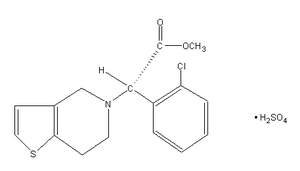WASHINGTON -- Patients on long-term clopidogrel treatment don't need to stop the drug before surgery, Richard E. Kuntz, M.D., said at a meeting that was sponsored by the Cardiovascular Research Institute at Washington Hospital Center.
"There is growing experience that it's safe to perform surgery on a patient taking clopidogrel. At our institution, surgeons will operate on these patients. There is no significant difference in morbidity and mortality" during surgery, said Dr. Kuntz, who is a cardiologist at Brigham and Women's Hospital in Boston.
"Surgeons make more of a big deal about clopidogrel than they need to," he added.
This approach to dealing with patients on long-term treatment with the antiplatelet drug clopidogrel (Plavix) was endorsed also by Ron Waksman, M.D., of the division of cardiology at the Washington Hospital Center.
"If we push our surgeons, they'll do surgery without waiting to stop clopidogrel," said Dr. Waksman, who chaired the meeting.
The issue of when to stop clopidogrel recently became critical for patients who take the drug after they have received drug-eluting coronary stents. A report last year detailed four anecdotal cases of patients who developed clinically significant coronary thrombosis within a drug-eluting stent after their clopidogrel and aspirin regimens were stopped (Lancet 2004;364:1519-21).
In three of these cases, patients had stopped their antiplatelet medications before surgery.
These reports have made experts wary about stopping aspirin and clopidogrel in their patients.
COPYRIGHT 2005 International Medical News Group
COPYRIGHT 2005 Gale Group



